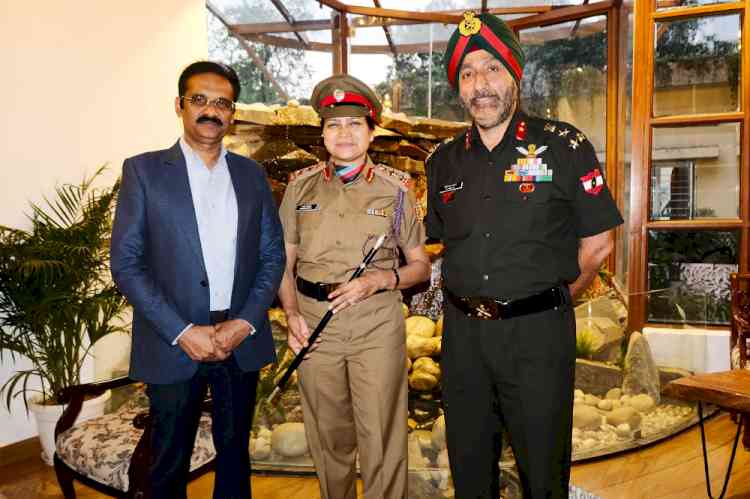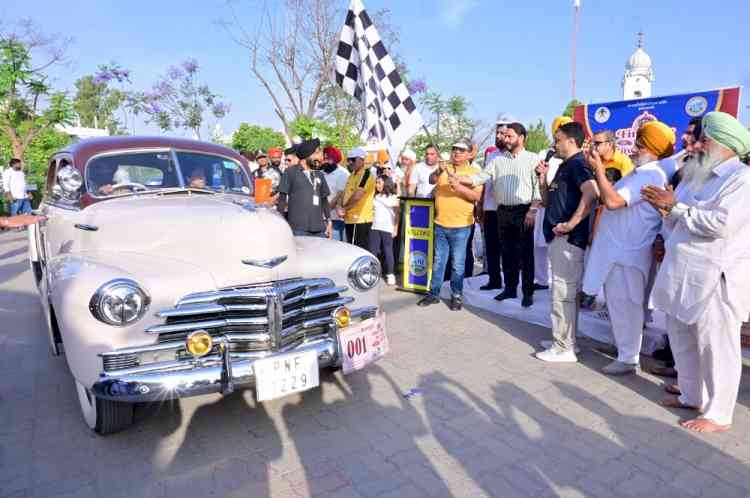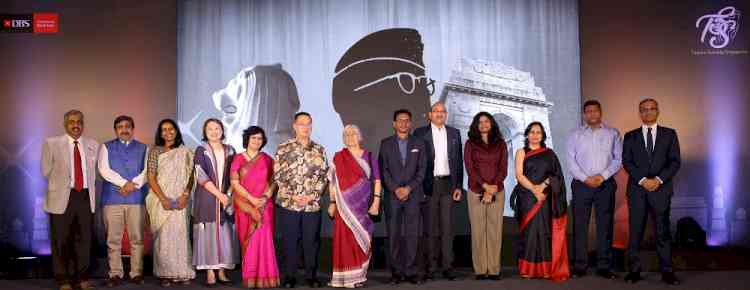Robotic/Laparoscopic surgery potentially improves quality of life of GI cancer patients: Dr Rawat
Author(s): SK VyasJalandhar: Cancer is now one of the top causes of death in India, second after heart attack, up from seventh position in 2000. Cancer cases have doubled in the last 20 years. According to WHO, with 700,000 deaths, 1.1...


Jalandhar: Cancer is now one of the top causes of death in India, second after heart attack, up from seventh position in 2000. Cancer cases have doubled in the last 20 years. According to WHO, with 700,000 deaths, 1.1 million new cases every year, 3.3 million patients at any given time, cancer has emerged as a leading killer for the first time. These figures are distressing. However, at the same time it is also true that early detection and timely medical and surgical intervention in the early stages of cancer can prevent many such deaths.
This was stated by Padma Shri awardee Dr Saumitra Rawat while giving presentation at the forum with respect to the laparoscopic/robotic surgery in gastrointestinal (GI) Cancer at a 25th anniversary celebration function organised by the Physician's Forum of Jalandhar (Punjab) here recently. Dr Rawat is the Chairman and Head of the Surgical Gastroenterology and Liver Transplant, Sir Ganga Ram Hospital Delhi. He is a pioneer in bringing up Laparoscopic and robotic surgery for Gastrointestinal Intestinal Cancer in India and Abroad.
He added the prime problem in the diagnosis of the GI cancers is that their early symptoms -- like loss of appetite, indigestion, nausea, heartburn, coughing, difficulty in swallowing, weight loss, frequent choking while eating, stomach pain and change in bowel habits, bleeding per rectum -- are often overlooked by the patient until serious symptoms show up, but, by that time the cancer has already progressed to advanced stages. Considering this aspect, it is highly imperative that people should not neglect the early symptoms and should go for regular screenings especially if they have a family history.
Once the cancer has been detected, its stage is determined. Taking into account the cancer stage, the therapy is initiated. Usually, in the initial stages, surgery is needed to remove the cancerous cells from the affected site. In the middle stages, a combination of surgery and chemotherapy is put into application, while in advanced stages generally chemotherapy is the only option.
Often the surgeries require resection of the oesophagus, stomach, colon, rectum or abdominal perineal resection (removal of anus, rectum and sigmoid colon) in case of oesophageal, stomach and colorectal cancer respectively. In the conventional procedure, this is done invasively by making a large abdominal cut which results in a big scar, higher risk of complications and hospital acquired infection, more pain after surgery, long hospital stay and a long recovery period.
However, now with the advent of minimally invasive or laparoscopic technique, surgery has become extremely patient-friendly. Unlike the conventional procedure, in the laparoscopic method few very small incisions are made to carry out the operation. A laparoscope is a small tube that consists of a light source and a camera. The surgeon makes a small incision in the skin and passes the laparoscope through it and is then guided to perform the surgery by the magnified images of the internal organs which appear on the screen. A few more small incisions are made to carry out the surgery.
Also known as keyhole surgery, this approach has the same success rate as standard open surgery along with potential benefits for the patient like it causes smaller scar, less blood loss, less risk of hospital acquired infection, less pain after the surgery, shorter hospital stay and faster recovery.
One of the latest advancements in surgery for GI cancer is Robotic Surgery which employs a minimally invasive technique. During robotic surgery, the surgeon sits at a console that has hand, finger, and foot controls. The robot precisely copies every movement while the surgeon views the operation on a screen. The robotic arms have multiple joints and can move in small spaces with great dexterity and precision. The surgeon can execute very fine movements through the robot, cutting down the chances of damaging nerves and maintaining patient’s normal functions to a much greater extent than the conventional surgical procedure.
This novel robotic/laparoscopic surgery potentially improves the quality of life of GI cancer patients; however, the awareness about these minimally invasive procedures is quite low among people. Also, since these are sophisticated procedures, surgeons should be well-trained to conduct such surgeries. In India, there are very few surgeons who are skilled to perform these procedures, and therefore it is necessary that training workshops along with international collaborations should be organized so that more surgeons get equipped with the expertise of performing robotic/laparoscopic surgery.
Dr Rajeen Sood, President Jalandhar City Chapter, Dr Vikas Gupta, Finance Secretary, Dr Inderdeep Singh, Secretary, Dr Pawan Gupta, Alok Lawani, past president of the Forum, Dr Vijay Mahajan, Dr Balwinder Singh, Dr U.S.Ghai, Dr R.S.Chahal a renowned Surgeon, Dr Vijay Nanda, Dr Puneet Sharma, President of the Association, along with over 100 active members were present on the occasion.

 cityairnews
cityairnews 
















